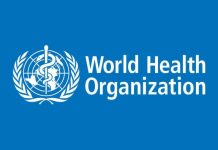– As WHO records over 86,000 cases, 112 deaths

Towards finding a lasting solution to the local and global epidemic of Monkeypox (Mpox), researchers from the Nigerian Institute of Medical Research (NIMR) have received a sum of $3 million from the Canadian Institute of Health Research (CIHR) and International Development Research Centre (IDRC) to embark on an international project that will help inform the clinical and public health response to the viral infection.
This comes as the World Health Organisation (WHO) has recorded a cumulative total of 86,724 laboratory-confirmed cases of Mpox, from 1 January 2022 through 27 March 2023, with 112 deaths, from 110 countries across the globe. In Nigeria, since the re-emergence of Mpox in September 2017, 2,635 suspected cases have been reported from 36 states and the FCT, with 988 confirmed cases from 34 states.
Addressing participants at the inception meeting of the international project named “Canada-Africa Mpox Partnership (CAMP), held at the NIMR’s Conference Hall on Wednesday, Director General, NIMR, Professor Babatunde Salako, said the aim of the gathering was to introduce the project to critical stakeholders and to give them the opportunity to share their interest and concerns that can be addressed through the project’s objectives.
He expatiated on the essence of the briefing from previous experience, saying after completing a research, more often than none, people find it difficult to accept the results or interventions from the project. NIMR therefore resolved to bring stakeholders on board from the onset of the research, so that they can easily accept and use the intervention of the project at the end of the investigation.
Salako hinted that the investigation brings together 68 researchers with multidisciplinary expertise from Canada, Nigeria, the U.S and U.K. It is co-led by Prof. Rosemary Audu, director of research and head of Microbiology Department at NIMR and Dr Darrell Tan, an associate professor in Temerty Faculty of Medicine and Infectious Disease Physician at St. Michael’s Hospital, Ontario, Canada.
Speaking on the dynamics of the study, the Co-Principal Investigator, Prof. Audu, said the CAMP project focuses on three main topics across diverse epidemiological, geo-social, and health system contexts, which are : Mpox transmission, treatment, and vaccines.
“The paradigm shift in the epidemiological pattern of Mpox from the initial sporadic reports from endemic countries, including Nigeria, to the sudden surge in non-endemic regions such as Canada, calls for more scientific studies on the absence, grey areas and misconstrued aspects of Mpox.
“This grant will provide the necessary support for enhanced diagnosis and surveillance, using a collaborative approach for collection and cascading of responses in both countries to help mitigate the impact of this emerging and re-emerging disease globally” she asserted.
Prof. Audu further stated that the CAMP project brings a team of multidisciplinary researchers in a consortium of five institutions-the Nigerian Institute of Medical Research (NIMR), Institute of Human Virology Nigeria (IHVN). University of Ilorin (UNILORIN), Slum and Rural Health Initiative Network (SRHIN) and Maryland Global Initiatives Corporation (MGIC), in collaboration with other national partners.
The international research, according to her will have three sub-projects, as it will utilise mentor-mentee model, which will give room for capacity building of Nigerian researchers from Canadian team.
“In the first sub-project, the Mpox Prospective Observational Cohort Study, CAMP researchers are working to understand transmission from multiple angles. This will include looking at how the virus is spread between humans, including those who are asymptomatic or pre-symptomatic, between humans and animals, and from contaminated surfaces.
“For the second sub-project, the team is conducting a randomised controlled trial to assess the safety and effectiveness of the smallpox drug tecovirimat as a treatment for Mpox
“The last sub-project focuses on evaluating the role of the Imvamune vaccine to prevent Mpox infection in humans. The team is using observational data to determine the vaccine’s safety and effectiveness, including how the effectiveness changes based on the number and timing of doses, amount of time since vaccination and patient subgroup”, she stated.
While there is no drug that have been directly tested and shown to be effective against Mpox in humans, Audu said by using the same design and measuring the same outcomes as similar trials in both Canada and Nigeria, this trial will contribute to global data on the efficacy of tecovirimat.
Similar to the lack of human efficacy data on Mpox treatments, she asserted that there is also a need for high quality data on the safety and effectiveness of the smallpox vaccine Imvamune that is currently being offered to individuals at high-risk to protect against Mpox.
Underscoring the importance of the project, Prof. Richard A. Adegbola, consultant and researcher, Department of Microbiology, NIMR, said the investigation will no doubt provide insights into resolving the epidemic of Mpox in Africa and across the globe, because if you want to solve any problem, you must study it to get in-depth knowledge about it and arrive at solutions.
According to him: “If you want to solve a problem, you study it, because if you don’t know what the problem is all about, how can you solve it? So what is there for Nigerians is that we want to understand this problem, so that we can devise means on how to trace the virus movement and how to break the transmission chain. If we don’t know that, we can’t address the problem”.
Importantly for the community, Adegbola who serves as the advisory to the research team, said they need to know why are people stigmatised with Mpox, and how common is the infection? How many people does it affect?
“If I know is not my problem, that it is the other people in the room that have the problem, then I won’t be stigmatised at all” he explained. But because people are not fully aware of the condition, he said they stigmatised others with the infection. Thus with proper enlightenment, stigmatisation will reduced.










